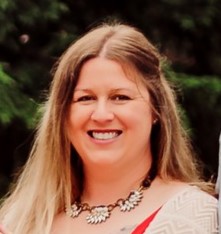
The decision to pursue a degree can feel intimidating and overwhelming as you wonder about time and stress management. When you’re a parent, all these considerations are amplified.
I personally delayed becoming a doctoral student because I felt this way, but I decided to start shortly after having my fourth child. As a full-time special education teacher, I wanted to expand my knowledge beyond the special education field and stop putting my goals on the back burner.
I would love to say that adding this endeavor to my full plate didn’t take time away from my family, but that’s not true. I’ve snuck in work during car rides for family trips and waiting in pick up lines. I’ve read articles on a treadmill before work and listened to videos while cooking dinner. However, I don’t regret pursuing my goals.
Feeling selfish is an easy trap for parents to fall into. It often pops up when we dedicate time to pursuits that don’t involve our children and this includes going back to school. But pursuing higher education requires perseverance, a growth-mindset, time and stress management skills, creative thinking, commitment and more. Aren’t these the very skills and qualities we want to instill in our children?
My oldest daughter is thirteen and middle school is hard. She questions everything. Why does she need to complete certain assignments? Why does she need to write about topics she isn’t interested in? Who cares about spelling? Why does she need to attend practices and complete homework rather than spend time with friends?
In that regard, my return to higher education could not have been timed better. Needing to complete my own coursework has facilitated important conversations around the questions my daughter has. I talk with her and my other children about navigating life, school and work. In addition to supporting these conversations, I am consistently modeling the traits I want them to gain as individuals.
While working on my own classwork, my children are witnessing the traits I want them to gain as individuals because I’m modeling them firsthand. Educators know that modeling is an important element to teaching, but parents often forget this in the hustle and bustle of life. In fact, parents are the most powerful model, as we are an adult our children most trust.
I can’t always engage with my kids at the same level as I can while I’m not in school, but I intentionally choose to be in the same area with them while working. If they are outside, then I take my computer outside. Giving up time is a sacrifice, but reframing my mindset helps me see that I’m teaching a worthwhile lesson to the young minds in my house – that sacrifice and dedication pay off.
Using our experience as scholars and parents has more meaning to our children than words alone. In moments of frustration, exhaustion and questioning, I challenge you to use these feelings as opportunities to facilitate hard conversations. Kids need to see that these emotions are normal and to know how to manage them. Through witnessing a trusted adult taking on challenging experiences and engaging in dialogue about them, children can gain life lessons and skills that prepare them for the future. Modeling perseverance and dedication to achieving a goal is the best way to help children reach their full potential as they set their own goals.
American College of Education offers fully online, flexible course delivery to make higher education doable for today’s busy adult. Check out our program offerings here.

